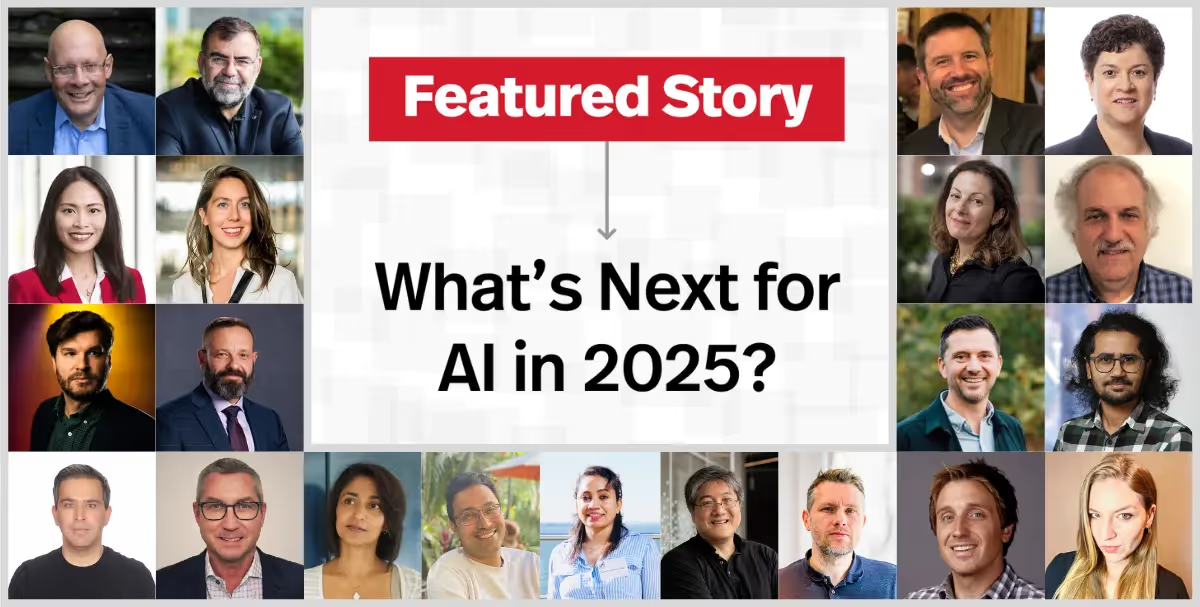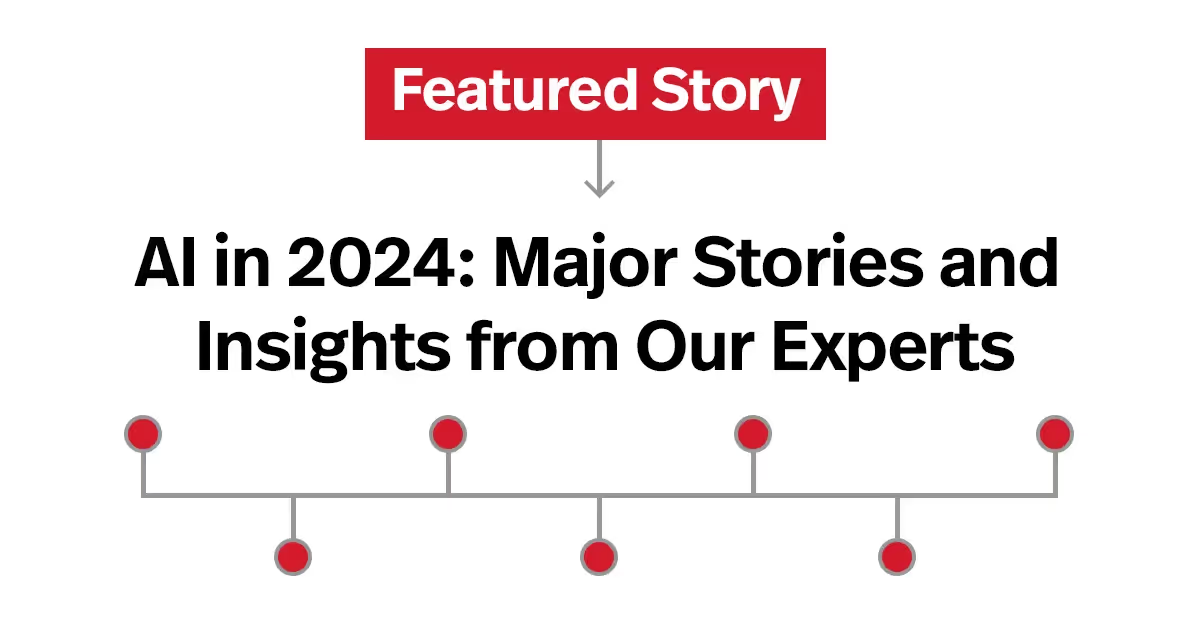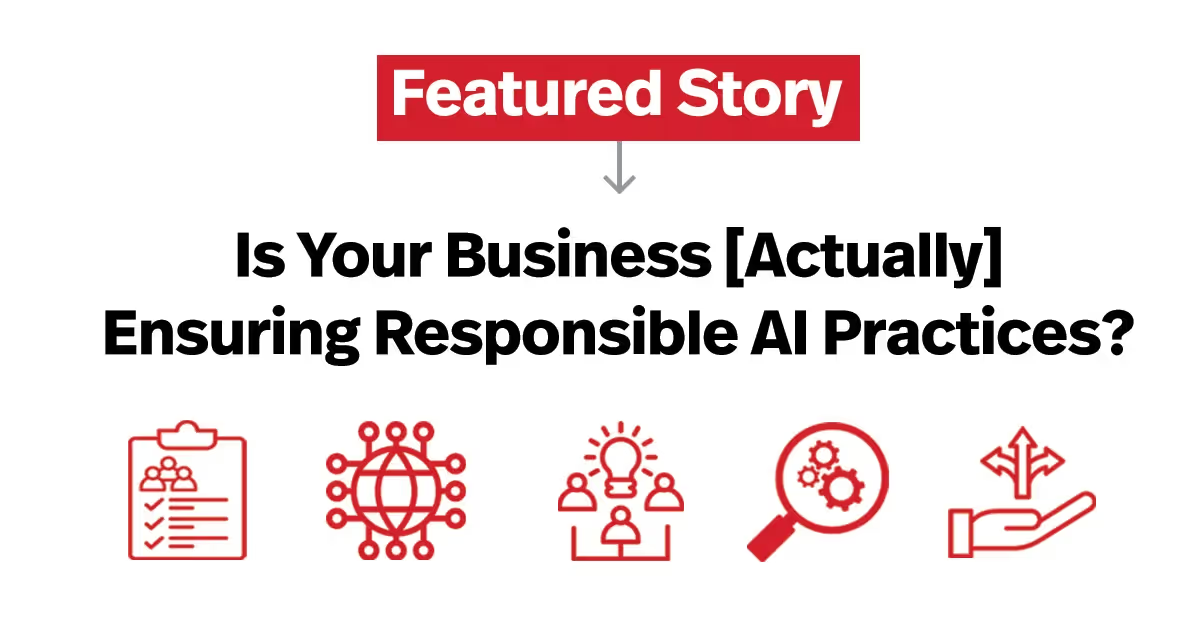Human-centric AI for Healthcare & Life Sciences

New drug discovery, personalized medicine, faster clinical trials, early disease detection—AI’s promise in healthcare and life sciences is nothing short of ambitious. But hype can be dangerous. When it comes to human health, sober analysis is quite literally the difference between life and death. With such mixed messaging, how can clinicians, researchers, laboratories, administrators, and industry leaders expect to make good, informed decisions?
This October 10, we are hosting our annual conference, "The State of AI in Health and Life Sciences" in Boston aimed at answering just that. Stay tuned for more exciting details!
Here, experts discuss the opportunities for AI in health, life sciences, and drug discovery with cautious but hopeful eye.
Learn more about AI + Health and AI + Life Sciences at the Institute for Experiential AI.

"Our future health depends on flipping the healthcare model from reactive to proactive. Half of the global population currently lacks access to essential health services, especially preventive care. The next few years will bring a new health ethos in which clinical care providers and individuals leverage AI to make more informed and personalized decisions. Predictive AI models will enable forecasting of our health trajectories. The healthcare workforce will see a shift toward computational medicine and education. Come and hear about many of the transformations in health and life sciences at our October ‘The State of AI in Health and Life Sciences’ conference.”
- Gene Tunik, Director of AI + Health

"AI and drug discovery will be front-page news in 2024. We will read about the impact of AI throughout the pharmaceutical lifecycle, including various stages of R&D, clinical trial design, regulatory approval, and the identification of novel combination therapies. AI partnerships and investments will be announced by large pharmaceutical companies, venture capital firms, government agencies and private investors.”
- Sam Scarpino, Director of AI + Life Sciences

"Businesses are increasingly recognizing the need to implement AI solutions that go beyond off-the-shelf options. We take pride in all our work with partners, as they are now progressing into advanced phases, expanding the capabilities of healthcare entities in the U.S. and globally. In 2023, for example, we worked on projects aimed at enhancing precision oncology processes to ensure faster and more accurate diagnoses, preparing for future pandemics, and developing platforms for early detection of neurodegenerative diseases such as Parkinson's. Looking ahead, the integration of AI technologies holds immense potential to revolutionize healthcare across all fronts.”
- Maria Giovanna Trovato, Global Strategy & Business Development in Healthcare and Life Sciences

"The integration of AI can revolutionize product improvements by enhancing drug discovery processes, optimizing clinical trials, and accelerating personalized medicine. Similarly, AI-driven process improvements can streamline manufacturing processes, reduce costs, and enhance quality control measures. These advancements hold promise for tackling complex diseases, improving healthcare outcomes, and driving innovation. However, the unique challenges lie in the complexity of biological systems, the ethical implications of AI in healthcare decision-making, and the need for extensive data validation and regulatory compliance. As a researcher in both process and product improvement, I am particularly intrigued by the potential of AI to unravel the intricacies of biological processes and facilitate the development of novel therapeutics as well as enable real-time decision making and lot release. Thus, fostering interdisciplinary collaboration, ethical frameworks, and regulatory oversight is paramount to harnessing the full potential of human-centric AI in the biotechnology industry while addressing its associated challenges."
- Jared Auclair, Vice Provost Research Economic Development and Director of BioInnovation, College of Science

"The idea of Human-centered AI is to create AI with a focus on meeting human needs and respecting human values and experiences. This also includes considering the social and ethical implications of AI technologies, and creating AI systems that are transparent, interpretable, and accountable. The research that we do on human-centered AI focuses on multi-modal perception technologies to understand human emotions, social signals, and context. We apply this to human-machine interaction, to enhance the capacities of machines to fluently interact with humans by perceiving social and emotional signals, and responding to them appropriately. We also apply our research to health and human wellness. AI can help us analyze large amounts of data, understand them, interpret them, and make predictions. These capacities of AI applied to health can be used for prevention and early detection of health conditions. They can be also used to design personalized treatments and to improve the experience of patients, their family members, and medical experts. However, before using AI in practice it's essential to conduct very rigorous testing to ensure that the technologies will have a positive impact on society, and they are safe, reliable, and fair."
- Agata Lapedriza Garcia, Principal Research Scientist

"There is a unique opportunity to translate the eye-catching advances in computer vision to health domains, such as developmental psychology or medical microscopy, that have relied heavily on meticulous but tedious expert-led manual “coding” of observations to enable quantified research. But at the same time, the development of these tools and their underlying data raise questions of responsibility, privacy, and fairness, which in practice are mostly adjudicated by computational researchers without significant feedback or even awareness from the data stakeholders or the general communities that this research will touch. We are trying to learn to do a new kind of science, and simultaneously wading through a new landscape of questions of cultural and ethical responsibility."
- Michael Wan, Research Scientist

"I would hope it's fairly intuitive that involving human feedback is important. If you're doing a generic classification task or object-detection or something, there may be situations where it's not particularly important for a human to understand what's going on as long as the result is accurate. That’s not really the case in healthcare. Let's say my AI model is diagnosing a patient with a mental health disorder. It doesn't matter how well it has done on my training data. If I just provide the diagnosis, that won't be enough. Both practitioners and patients need to know why that decision is being made. One of the things that I work on is providing theoretical evidence for the kinds of models that can yield robust explainable results—either as human interpretable models or post hoc explanations. The idea is to create models that provide accurate predictions and are amenable to robust explanations, for the sake of both patients and doctors."
- Zulqarnain Khan, Research Scientist

"Human-centric AI and Human-in-the-loop AI are the goldilocks zone for biomedical problems. Some of these data-informed solutions turn out to be true gamechangers. My research interests are focused on cancer classification, recurrence prevention and treatment (immunotherapy). A lot of multimodal data—think pathology and radiography images, clinical parameters, gene activity, etc.—exists. We are building and applying AI driven tools to effectively integrate these large datasets with existing biological and oncological knowledge in trying to answer key questions. The challenge is to identify what needs to be done to move the needle, frame the problem in a way that’s attackable by data and, finally, find the optimal quality and quantity of data relevant to the problem. The opportunity is the enormous ability of predictive and generative AI frameworks that lets us leverage biomedical big data to make verifiable predictions. The public needs to be informed of all the ways AI is enabling novel and many a time, clinically translatable discoveries in oncology and what it means for them. It also comes with a lot of caution since it’s easy to actionate and get overly excited about results that aren’t yet ready for the clinic or for making any recommendations."
- Ramkumar Hariharan, Senior Scientist

"The research possibilities in AI and healthcare are exploding at the moment. Healthcare providers and clinicians have a rapidly multiplying amount of AI tools at their fingertips, which is very exciting, but knowing which opportunities to explore and implement can be a challenge. Researchers in health and life sciences are actively seeking to bridge this gap not just by proving that artificial intelligence can improve outcomes, but also establishing trust so clinicians, caregivers, administrators, and patients can confidently include AI in their decision-making."
- Hilary Farrell Prosnitz, Director of Research Development

"Advances in biotechnology are soon going to become humankind’s most effective defense against diseases and pathogens. AI will form the bedrock for analyzing the universe of data generated from the four pillars of multiomics, genomics, transcriptomics, proteomics and metabolic. Explainability will look back and revolutionize our understanding of biological processes. Structure and function prediction using AI will give us fine-tuned control over biological systems that bring about transformational changes in everything from treating Alzheimer’s disease to making high-efficacy vaccines. A future in biotechnology without AI is unforeseeable."
- Ayan Paul, Research Scientist
Stay tuned for more information about our October "AI for Healthier Lives" conference!




